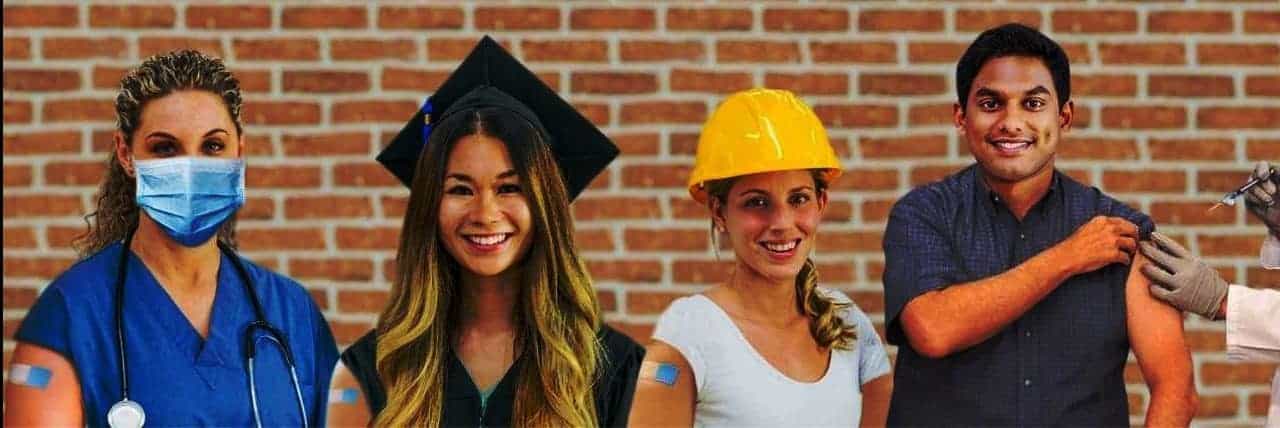Workers’ Compensation and OSHA -Many workers are understandably upset if an employer refuses to correct an unsafe worksite. It’s worse if you get injured because of it! What are your options if that happens? Today, we’ll talk about how Workers’ Compensation and OSHA address unsafe working environments.
Workers’ Compensation and OSHA
We’ll cover what your rights are to wage loss under Workers Comp and what your rights are in unemployment. Be sure to read all the way to the end because we’re going to discuss the one important thing you need to say if you are applying for unemployment and being told by someone on the phone that you cannot apply.
How does wage loss differ between Workers’ Comp and unemployment?
After medical care, the number one concern injured workers have is lost wages. There are often a number of questions, such as “Can I apply for unemployment? Should I apply for unemployment?” and “Am I supposed to get Worker’s Compensation now?” and so on. In general, an injured worker with restrictions is going to receive more from Workers’ Compensation per week than through unemployment which tends to pay a little less than Workers’ Compensation. A big difference is that unemployment, in certain circumstances, can be taxable. Workers Compensation benefits are not taxable. So when making that decision, there are a few things that you need to know.
Workers Comp pays for lost wages if you are off work due to the injury, and there are two big time frames. There’s the time before the doctors have discharged you, we call that Maximum Medical Improvement (MMI) and there’s a time frame after the doctors have discharged you after MMI. Before MMI, if you are off work and you have restrictions that won’t allow you to work, then you are going to get what’s called Temporary Disability (TD) benefits, which is two-thirds of your average wage. If you are able to work but earn a lot less, you’ll get what’s called Temporary Partial Disability (TPD) benefits. And again, you’ll be receiving two-thirds of your lost wages.
If you have restrictions after MMI, then Workers’ Comp won’t pay anything for wage loss, so you should absolutely be applying for unemployment. Now when you apply for unemployment, they may ask if you are receiving Workers Comp benefits, and you need to say, “I’m getting Workers’ Compensation, but I’m not getting wage loss under Workers’ Compensation.” If they try to continue denying you trying to apply for unemployment, then read until the end to find out exactly what to say. Workers’ Compensation and OSHA.
When should I apply for unemployment?
Let’s say you get injured, you have restrictions, and you’re off work. The doctor puts you at MMI, removes the restrictions, and now you’re off work without restrictions. You should absolutely apply for unemployment. In fact, wage loss under Workers’ Compensation after MMI is very difficult to get. It’s called Permanent Total Disability (PTD), and you have to show that you are unable to earn any wages at any position in any place with any employer. That means if you can do a minimum wage job, two hours a week, then you’re not entitled to lost wages under Workers’ Comp. For unemployment, all you have to do is show you’re off work, and it isn’t your fault.
In general, we strongly recommend if there’s any chance of you being able to get lost wage benefits under Workers Comp before MMI while you have restrictions, don’t get unemployment if you can afford to hold off. Instead, get the Workers’ Compensation lost wages and save your unemployment for after MMI when you are off work.
What is the first important deadline I need to meet?
There are some important time frames that you need to understand in terms of unemployment. The first is if you’re off work with restrictions getting lost wages pre-MMI, and then MMI comes and you lose Temporary Disability. This means you need to apply for unemployment within 30 days of getting the final admission of liability. If you fail to apply for unemployment in this 30-day period, you may not get your full benefit.
I’ll explain what that means, typically when you apply for unemployment benefits the government looks back and states how much wages were reported to you in the previous quarters, and based on that, they’re going to determine how many benefits you can get. So if you were injured in June 2020 and off work until June of 2021, the government of Colorado looks back at the wages reported to you in the last five quarters. They’re going to see no earned wages for the quarters from June 2020 to June 2021, and then they’re going to allow you very little benefits. However, if you’ve applied for unemployment within 30 days of the final admission period, the government of Colorado will look back at the quarters from when you left work due to your injury, and you will get the full benefit from the quarters you worked and unemployment benefits based upon your wages pre-injury. If you wait 30 days after the final mission of liability and you don’t apply for unemployment, then you won’t get benefits, and you won’t get that look-back period extended to when you left work because of the injury.
What is the second important deadline?
The second important deadline that you need to know is that, unfortunately, the look-back period we mentioned doesn’t apply if you have been off work for three years or more due to a work injury. So if you’re on Temporary Disability benefits for three years, then placed at MMI, given the final admission of liability, and then finally you apply for unemployment, they’re not going to waive that period of time you’re off work. When they search for the look-back period, they’re going to view your wages which will show no earned wages from the date you applied.
What should I say if I am denied unemployment?
One of the most common issues our clients encounter is when they try to apply for unemployment and are denied. It typically goes like this: the injured worker calls and asks to apply for unemployment, but they ask: “Well, are you getting workers compensation?” The worker’s typical response is, “Yes, I am getting medical care,” or maybe, “I’m getting payments, but it’s not wage loss. It’s to compensate me for my permanent impairment, and that’s not considered wage loss.” The unemployment office will try to shut this down and say something like “You’re not entitled to it, you can’t apply.” This is where the unemployment office would like this conversation to end, but don’t hang up just yet. They cannot verbally tell you that you can’t apply. The reason why is because you can’t appeal that.
We can’t take a verbal denial to a court and say, “My client says this nameless clerk at the unemployment office says he can’t apply.” So, If you are ever told at unemployment you can’t apply because you’re on work comp or any other reason, you need to say this: “I need your name and number for legal purposes. If you cannot process my application and if I’m not permitted to apply, please deny me in writing so I can take the denial to an attorney to review it and help me decide if I want to appeal that denial.” If they refuse to do that, start marking down what time you called and the date. You can also ask to speak with the supervisor as another measure. To summarize, do not take no for a verbal answer. You may not be entitled to any benefits, but they can’t tell you that you can’t apply, so hopefully, that will help you.
Related Information: A Workers’ Compensation Lawyer’s Guide to Movies
We’re here to help – Workers’ Compensation and OSHA
If you or someone you know and love has been injured in Colorado, Kaplan Morrell has attorneys with decades of experience helping injured workers and getting them the best impairment rating possible, and we would love to help you, too. Reach out and schedule a free consultation to learn more about your rights. Call us at 970-356-9898 or visit our website at https://kaplanmorrell.com for more information.
Connect with Kaplan Morrell
Facebook: https://www.facebook.com/
Instagram: https://www.instagram.com/workcompcolorado
Twitter: https://twitter.com/kaplan_morrell


